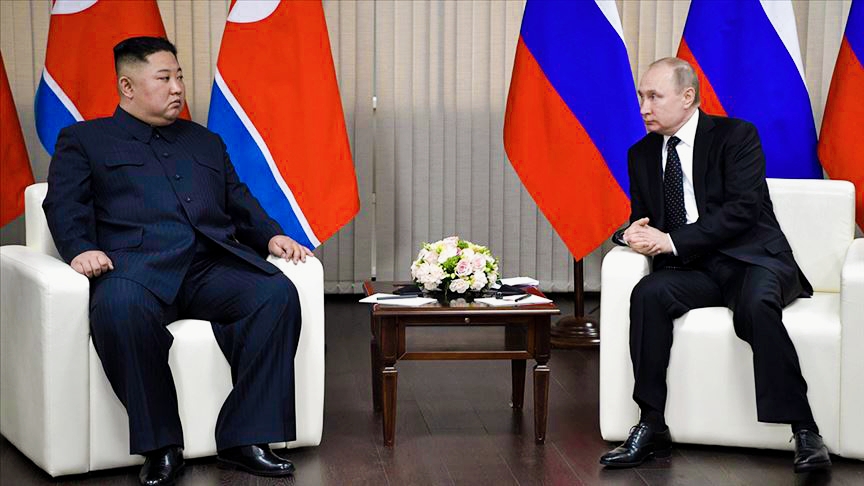A recent study published by the Friedrich Naumann Foundation in Germany revealed a growing discontent in North Korea regarding what it described as "inequity" in military cooperation with Russia during the ongoing war in Ukraine.
The study titled "Unequal Partnership" was prepared by researcher Olena Gusinova in Seoul, indicating that North Korea has provided extensive military support to Russia, including:
• Supplying weapons and ammunition worth no less than $5.6 billion since 2023.
• Sending around 15,000 North Korean soldiers to the Ukrainian front.
Despite this significant participation, the study estimated that the value of Russian compensations did not exceed $1.2 billion at best, while other estimates suggest it did not surpass $450 million, based on official data, intelligence briefings, and information from open sources.
According to the report, Pyongyang received in return for its military support:
• Food supplies.
• Some air defense systems.
• A very limited amount of hard currency.
* Disagreements Within the Alliance .. and Moscow Bears "Responsibility"
The study confirmed the existence of indicators of internal tension in the alliance between Moscow and Pyongyang.
It quoted North Korean state media as saying that senior officers criticized the Russian performance, accusing Russian forces of "poor coordination" and committing "strategic errors" in the early stages of deploying North Korean soldiers.
This tension was interpreted as a direct North Korean attribution of responsibility to Moscow for the heavy human losses suffered by its soldiers in battles.
According to South Korea's National Intelligence Service, nearly 2000 North Korean soldiers have been killed so far in the battlefields of Ukraine.
Intelligence officials believe that North Korean leader Kim Jong Un feels dissatisfied with what his country has received in return for this significant support, given the limited real economic impact of Russian aid on North Korea's domestic situation.
* Strategic Alliance .. But on Conditions?
It is noted that Russia and North Korea signed a strategic partnership agreement in 2024, in which both parties pledged to provide mutual military assistance in the event of an external attack on either of them.
Despite this agreement, the field realities and declared positions indicate that the alliance between Moscow and Pyongyang faces clear challenges and may enter a phase of reassessment in light of the disparity in interests and the scale of sacrifices versus gains.

